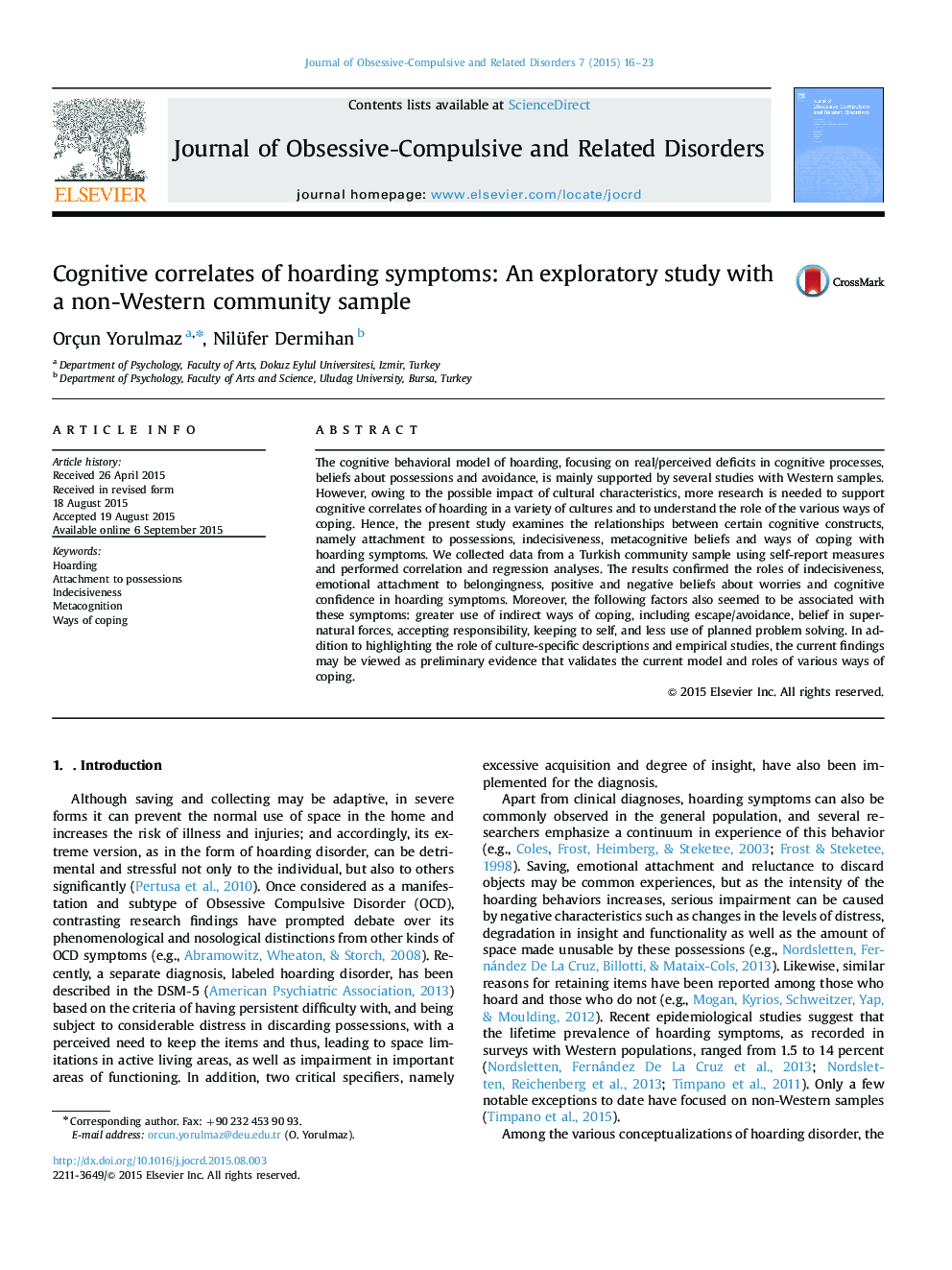| کد مقاله | کد نشریه | سال انتشار | مقاله انگلیسی | نسخه تمام متن |
|---|---|---|---|---|
| 912211 | 1473200 | 2015 | 8 صفحه PDF | دانلود رایگان |
• Main factors of cognitive accounts for hoarding behavior which also seems valid in a Turkish community sample.
• Apart from avoidance, other strategies of coping, mainly in the form of emotion-focused, are also influential in this symptom pattern.
• Culture-specific descriptions might account for various ways of coping in hoarding behavior.
• More cross-cultural research is needed on the impact of culture in hoarding.
The cognitive behavioral model of hoarding, focusing on real/perceived deficits in cognitive processes, beliefs about possessions and avoidance, is mainly supported by several studies with Western samples. However, owing to the possible impact of cultural characteristics, more research is needed to support cognitive correlates of hoarding in a variety of cultures and to understand the role of the various ways of coping. Hence, the present study examines the relationships between certain cognitive constructs, namely attachment to possessions, indecisiveness, metacognitive beliefs and ways of coping with hoarding symptoms. We collected data from a Turkish community sample using self-report measures and performed correlation and regression analyses. The results confirmed the roles of indecisiveness, emotional attachment to belongingness, positive and negative beliefs about worries and cognitive confidence in hoarding symptoms. Moreover, the following factors also seemed to be associated with these symptoms: greater use of indirect ways of coping, including escape/avoidance, belief in supernatural forces, accepting responsibility, keeping to self, and less use of planned problem solving. In addition to highlighting the role of culture-specific descriptions and empirical studies, the current findings may be viewed as preliminary evidence that validates the current model and roles of various ways of coping.
Journal: Journal of Obsessive-Compulsive and Related Disorders - Volume 7, October 2015, Pages 16–23
